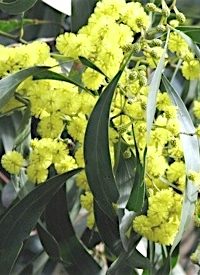
Does prohibition work? People make bad choices all the time. Overindulgence of alcohol has destroyed many lives, marriages, and families. The Bible speaks in harsh, clear terms about the danger of drowning in drink. Almost all branches of Christianity and Judaism embrace temperance. Some branches of the Christian faith have even taken positions against the consumption of any alcohol.
Yet the Bible at no time speaks of the prohibition of alcohol, and in 1 Timothy 5:23 we find: “Drink no longer water, but use a little wine for thy stomach’s sake and thine often infirmities.” (KJV) In fact, at Pesach, Jews are religiously enjoined to drink wine, just as Catholics sometimes are during Mass. If a congregant has a special medical condition which makes even small amounts of alcohol dangerous, then of course abstinence is allowed. Otherwise, the consumption of alcohol is part of a holy service.
When America tried Prohibition, exceptions were made for religious consumption of alcohol, but there was always a gray area. Would bureaucrats determine how much wine a priest or a rabbi could have for his congregants? Who determined when those who were religious required wine and when it was simply discretionary? Among the many flaws of Prohibition, the intrusion of the federal government into churches and synagogues was one of the most troubling. During the 1960s, American Indians were granted the right to continue to use hallucinogenic drugs (which occurred in nature) as part of their established religious ceremonies — another indicator of how government’s efforts at control and prohibition (in this case natural drugs) almost inevitably stray into areas of individual rights and private conscience (in this case worship), and though not in this case, usually conflict with those rights.
The evolution of biochemistry requires that state and federal laws follow the newest incarnations of manufactured drugs in order to prevent drug companies from circumventing the laws by creating a new drug that is not yet scheduled. The same happens with alcoholic beverages, although in a much less complex manner. Alcohol is combined into stimulant drinks and also non-liquid forms, the consumption of which state alcohol enforcement agents control.
These activities never succeed. As bad as the problems of alcohol and drug abuse have been in America, they were dwarfed by the scale of alcoholism in the Soviet Union. The early deaths from the effects of alcoholism, the lost man-hours in factories, the number of industrial accidents reached such epic levels at one point that the General Secretary of the Communist Party intervened. The power of the Communist Party in the Soviet Union was almost absolute. Whatever civil rights notionally existed for Soviet citizens were simply paper promises, revocable at any time. The means of coercion in the KGB — the “Sword and Shield of the Party” — were as draconian as any in human history. Yet prohibition in the Soviet Union failed. When alcohol was outlawed, creative Russians found other ways to make alcohol (not hard in a land of potatoes in which vodka is the preferred drink). Soviet airmen even turned to drinking aviation antifreeze.
Today Australia is considering its own approach to “plugging the holes” in the nation’s drug enforcement. Under legislation being considered, Australia could ban growing plants that contain DMT, dimethyltryptamine, a naturally-occurring hallucinogen. Hundreds, possibly thousands, of plant species would be affected, including Australia’s national flower, the golden wattle, Acacia pycnantha. Other trees, flowers, and plants that would be affected are peas, nutmeg, buckwheat, citrus trees, violets, and wisteria. How long have men cultivated these plants for the innocent pleasure and enjoyment of their fellow men? How serious can any government be in seeking to ban these common plants?
While it is true in theory that a gardener could grow these plants and chemically harvest some DMT, the effect of criminalizing the cultivation of these familiar flowers and plants is dumbfounding. Doubtless Australia would continue to allow cultivation, but only with proper state licenses, reports, inspections, regulations, and the like. The innocent act of gardening, a salubrious hobby, would suddenly become a stressful, legalistic activity. Bureaucracies would flourish and liberty would shrink.
More interestingly, although the purpose of this new legislation is stop major drug trafficking, many of the targeted plants have never been traded for drugs and have no value as drug plants, containing only trace amounts of DMT. In fact, in the case of many of these plants, the extraction of DMT is probably much more expensive than the street value of the DMT itself. This sort of Big Brother legislation would also hit hard nurseries, seed merchants, lawn care companies, farmers, private botanical gardens, and a number of other businesses whose economic activity is beneficial to Australians. The ban would also no doubt dissuade some young people from choosing careers in gardening, landscaping, or farming.
The whole argument behind prohibition (the government using police to stop people from hurting themselves) leads to such open-ended madness. In George Orwell’s classic novel 1984, the main character, Winston Smith, knows that “Big Brother” government has decreed that all must exercise “for their own good,” and that his television screen — like those of all the other citizens — will reveal his crime of inactivity to the government if he does not. Concentration camp guards also led inmates in “exercise.” What is true of exercise, a component of good health by any standard, is also true of gardening and the consumption of any intoxicants. Private, personal, and often religious injunctions are incomparably more effective than government coercion in controlling truly destructive behavior. There is a reason why certain groups of Christians and Jews have almost no incidence of alcoholism at all: private souls, listening to God, helped by their clergy, generally make good choices in how to live their lives.
The real destruction comes when government attempts to “fix” social problems. Christians and Jews have long had strong rules against divorce. Without government-paid social workers, children grew up in intact families with a much better statistical chance of being sober, drug free, employed, law abiding, happily married, and otherwise content and productive adults. When AFDC (Aid to Families with Dependent Children) and similar welfare support programs came along, perhaps with honorable intentions, the result was the subsidizing of illegitimacy — and the effects have been felt by all cultures, but are particularly prevalent in the black community, where now most children are born out of wedlock.
The proper role of government ought to be small, almost minor, in the lives of its citizens: it should preserve liberty and protect the nation from direct attack. The more government attempts to protect its citizens from themselves, the more foolish and more dangerous it becomes. And a prime example today is an otherwise free and sensible nation such as Australia pondering the banning of its own national flower — as well as nutmeg, peas, wisteria, buckwheat, citrus fruits, and violets.
Photo: Australia’s national flower, the golden wattle.



